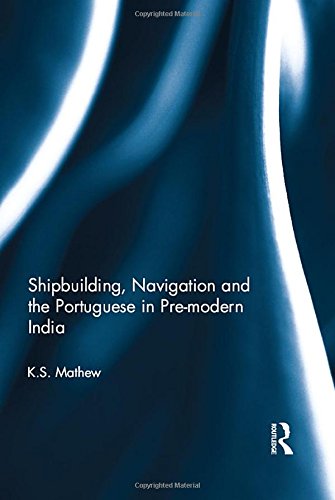

Most ebook files are in PDF format, so you can easily read them using various software such as Foxit Reader or directly on the Google Chrome browser.
Some ebook files are released by publishers in other formats such as .awz, .mobi, .epub, .fb2, etc. You may need to install specific software to read these formats on mobile/PC, such as Calibre.
Please read the tutorial at this link. https://ebooknice.com/page/post?id=faq
We offer FREE conversion to the popular formats you request; however, this may take some time. Therefore, right after payment, please email us, and we will try to provide the service as quickly as possible.
For some exceptional file formats or broken links (if any), please refrain from opening any disputes. Instead, email us first, and we will try to assist within a maximum of 6 hours.
EbookNice Team

Status:
Available0.0
0 reviewsIndia, especially coastal India, has a long history of shipbuilding and navigation dating back to the Indus Valley Civilization. Indian shipwrights and the labour force associated with various aspects of shipbuilding excelled in naval architecture. Their native wisdom was adopted by the Europeans engaged in shipbuilding in coastal India. Similarly some of the techniques of navigation followed by Indians were emulated by the European mariners.
A comprehensive peep into the science of naval architecture and navigation is attempted in this work making a comparative study of Indian and Portuguese architecture and navigation.
The volume discusses the importance of the timber grown in the monsoon-fed forests of the Malabar coast and its appreciation by the Portuguese shipwrights and theoreticians of naval architecture. The work shows that increase of the tonnage of ocean-going vessels and the appearance of hostile mariners from other quarters of Western Europe compelled the Portuguese to adopt enhanced technology in naval architecture and navigation. The fact that the use of canons for defence against intruders made the Portuguese vessels stronger than the Indian ships which, for centuries, were accustomed to considerably peaceful navigation is also brought out in this much anticipated volume.